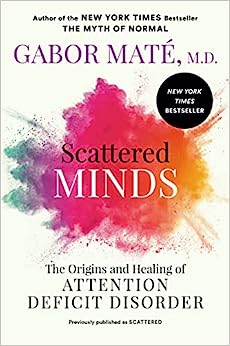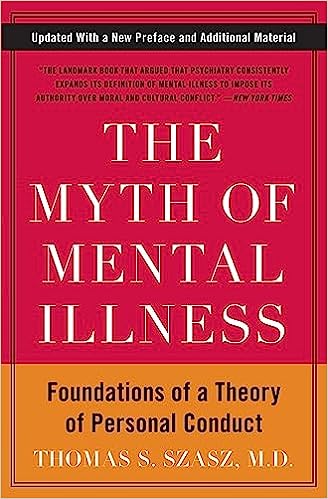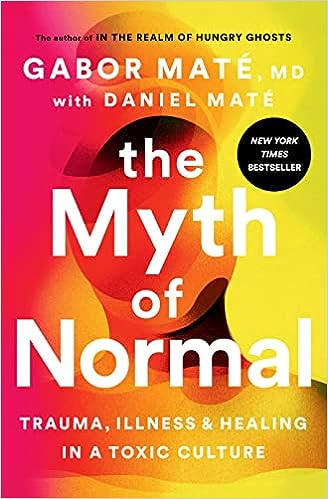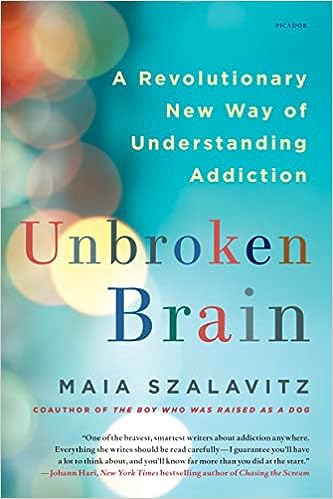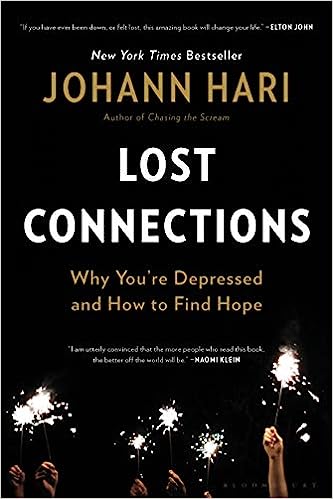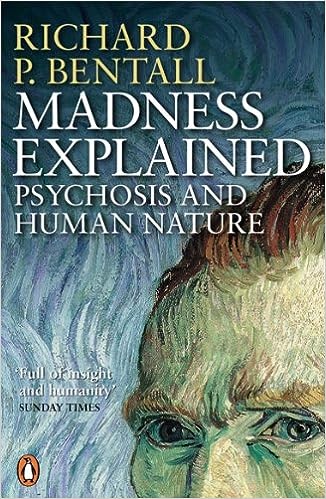Co-Occurring Disorders
The following is a list of books that explore common disorders that are co-occurring with addiction. We believe these help explain the connectivity addiction and other mental health conditions.
Scattered Minds
“Scattered Minds: A New Look at the Origins and Healing of Attention Deficit Disorder” by Dr. Gabor Maté offers an incredible perspective on Attention Deficit Disorder (ADD) and how it relates to addiction.
Dr. Maté merges his experience as a physician and his personal life story of living with ADD to provide a comprehensive understanding of the disorder.
The book explores ADD not just as a genetic or neurological disorder, but also takes into account the environmental and social factors contributing to it. Filled with real-life examples, we consider it a must-read for those looking to comprehend the condition beyond traditional narratives and seeking strategies to manage it.
“ADD can be viewed as a compensatory mechanism that preserves the individual’s self-esteem in the face of repeated failures.”
Details
- Original Date of Publication: January 1, 1999
- Author: Dr. Gabor Maté
- Number of Pages: 368
THe Myth of Mental Illness
“The Myth of Mental Illness: Foundations of a Theory of Personal Conduct” by Thomas S. Szasz is a landmark book that revolutionized our understanding of mental health.
Szasz challenged conventional beliefs about psychiatric diagnoses and treatments, arguing that mental illness is often a socially constructed concept rather than a medical condition.
The book encourages readers to examine societal norms and the power dynamics in therapeutic relationships. It was a provocative work when it was first released and continues to stimulate debate and shape the field of psychology.
“My aim in this book is to raise fundamental questions about the way we think about ‘science,’ ‘mental illness,’ and ‘psychiatric treatment,’ not to answer them.”
Details
- Original Date of Publication: 1961
- Author: Thomas S. Szasz
- Number of Pages: 320
The Myth of Normal
“The Myth of Normal: Illness and Health in an Insane Culture” by Dr. Gabor Maté and Daniel Maté is a searing critique of Western society’s approach to health.
It examines the paradox of why health issues like diabetes and auto-immune diseases are on the rise in Western nations despite considerable investments in healthcare.
The authors propose that our materialistic and individualistic culture, deeply entrenched in modern capitalist societies, has fostered excessive stress and trauma, contributing to an increase in disease. The book advocates for a return to interpersonal connections and authenticity, asserting that cultivating these fundamental human qualities can mitigate the health crisis.
For those seeking to understand the socio-cultural roots of addiction and illness, this is a good book.
“Whether we realize it or not, it is our woundedness, or how we cope with it, that dictates much of our behavior, shapes our social habits, and informs our ways of thinking about the world.”
- Original Date of Publication: 2022
- Author: Dr. Gabor Maté and Daniel Maté
- Number of Pages: 576
4-Week weekly
Weekly Consultations include four 60-minute online video meetings.
This option is for individuals who have completed a 12-week base program and are extending month to month.
You work together with your coach to assess your current daily routine and tailor fit a strategy that places you in the best position to achieve your health, nutrition, lifestyle, and career goals.
Unbroken Brain
“Unbroken Brain: A Revolutionary New Way of Understanding Addiction” by Maia Szalavitz presents a groundbreaking perspective on addiction.
Szalavitz, a neuroscience journalist and formerly addicted person, argues that addiction is a learning disorder rather than a disease or moral failing.
Drawing from her personal experiences and scientific research, the book offers fresh insights into why some people become addicted while others do not. It questions traditional approaches to treatment and advocates for more compassionate and effective ways to address addiction.
This book is a significant contribution to our evolving understanding of addiction, co-occurring disorders, and how to combat it.
“Calling addiction a disease usefully suggests that it is different from a moral failing, but it doesn’t accurately reflect how learning changes the brain.”
Details
- Original Date of Publication: April 5, 2016
- Author: Maia Szalavitz
- Number of Pages: 352
Lost Connections
“Lost Connections: Uncovering the Real Causes of Depression – and the Unexpected Solutions” by Johann Hari takes a different approach to understanding depression and anxiety.
Rather than viewing these conditions solely through the lens of brain chemistry, Hari explores how societal factors play a role. He suggests that many of our feelings of depression and anxiety stem from disconnection – from meaningful work, from others, from meaningful values, and from childhood trauma.
The book is a mix of Hari’s personal journey, interviews with scientists, and analysis of societal influences. It challenges traditional assumptions and offers new avenues for treatment and understanding.
“The opposite of depression isn’t happiness, but vitality, and it was vitality that seemed to seep away from me in that moment.”
Details
- Original Date of Publication: January 23, 2018
- Author: Johann Hari
- Number of Pages: 400
Madness Explained
“Madness Explained: Psychosis and Human Nature” by Richard P. Bentall is an examination of psychiatric diagnoses, from schizophrenia to manic depression, both with high co-morbidities with addiction.
Bentall, a clinical psychologist, challenges the traditional biomedical model of mental illness, arguing that these are not distinct entities but exist on a continuum with ‘normal’ mental health.
He argues that symptoms are reactions to life events and circumstances, rather than manifestations of underlying diseases. Drawing on extensive research and patient case studies, the book offers an alternative perspective on understanding mental health. It’s a good read for those interested in exploring the complexities of the human mind.
“The assumption that the psychotic continuum is wholly negative, representing nothing more than biological defectiveness, is clearly mistaken.”
Details
- Original Date of Publication: May 1, 2004
- Author: Richard P. Bentall
- Number of Pages: 656
Contact Us
We’re here for you every step of the way towards a healthier and more fulfilling life. Contact us today for personalized guidance, support, and to learn more about our services.
Open Hours
M-F: 8AM – 9PM EST
Sat: 3PM – 7PM EST
Sun: 8AM – 7PM EST

